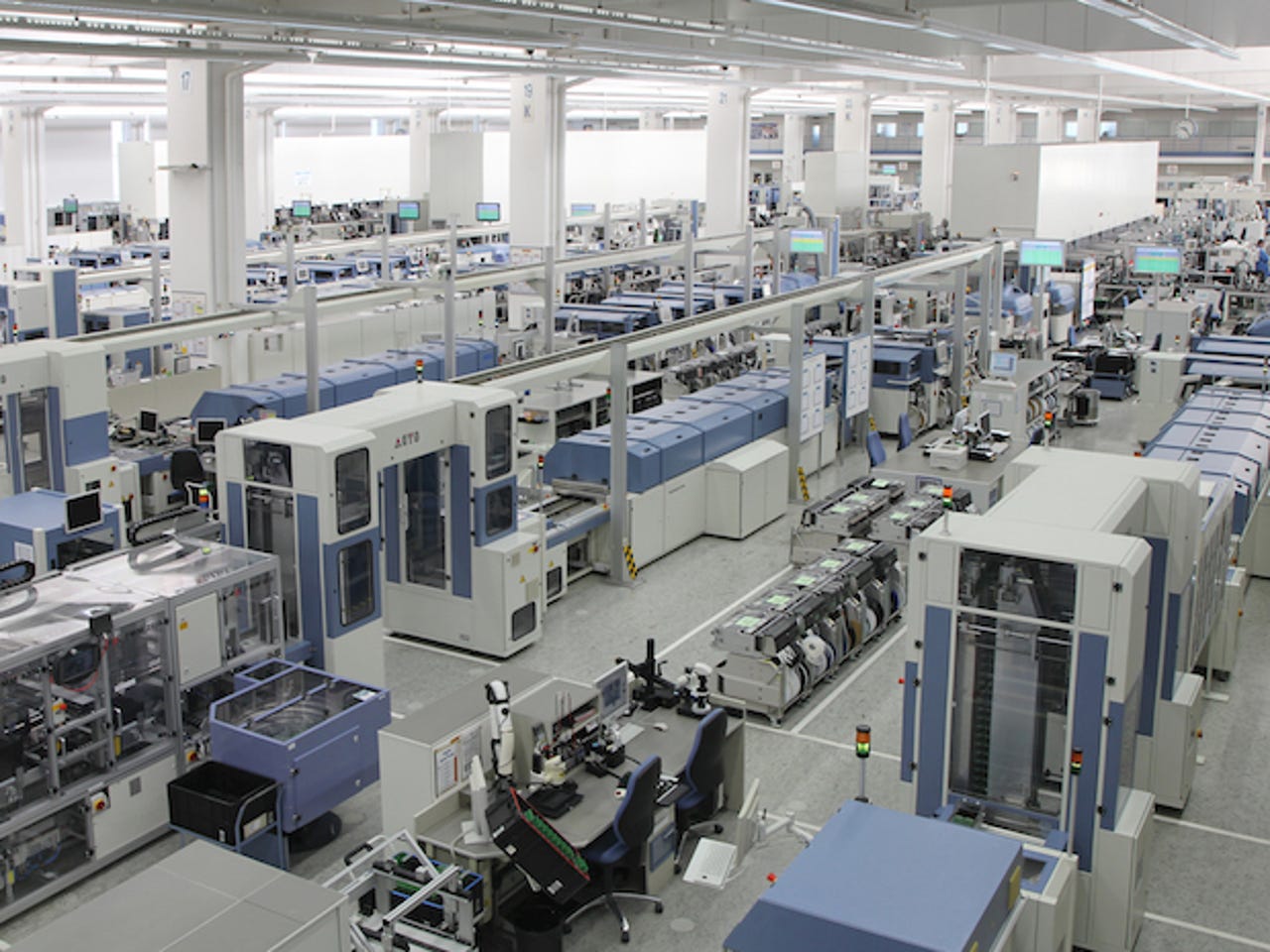Germany's vision for Industrie 4.0: The revolution will be digitised


Industrie 4.0 is the German vision for the future of manufacturing, one where smart factories use information and communications technologies to digitise their processes and reap huge benefits in the form of improved quality, lower costs, and increased efficiency.
Industrie 4.0 is a favourite theme for chancellor Angela Merkel who brings it up in almost every speech about business or the economy. Most recently, she urged all of Europe to embrace Industrie 4.0 when addressing the World Economic Forum in Davos in January.
"We must - and I say this as the German chancellor in the face of a strong Germany economy - deal quickly with the fusion of the online world and the world of industrial production. In Germany, we call it Industrie 4.0," she said. "Because otherwise, those who are the leaders in the digital domain will take the lead in industrial production. We enter this race with great confidence. But it's a race we have not yet won."
The German government is investing €200m to spur Industrie 4.0 research across government, academia, and business. It's a similar effort to the US-based Industrial Internet project which involves companies such as AT&T, General Electric, and Intel. Germany has its own slate of tech and communication heavyweights investing in Industrie 4.0, meanwhile, including Deutsche Telekom, SAP, and Siemens.
Siemens' smart factory
A harbinger of the next industrial revolution is already humming away in the small Bavarian city of Amberg. The Siemens Electronics Plant manufactures simatic programmable logic controls (PLCs), used for automating equipment in a variety of industries from automobile manufacturers to food and beverage producers.
Siemens makes a point of using the equipment it makes in its own factories, and the Amberg plant not only manufactures PLCs but also uses PLC-automated equipment to make the products - and runs on the software that Siemens sells to its manufacturing clients.
Basic automation has been a part of the Amberg plant since it began in 1989, but its use has expanded a great deal since then: now machines and computers handle 75 percent of the production process from start to finish. In addition to PLCs, the plant also makes use of human machine interface (HMI) components such as heavy-duty touchscreens, and coordinates the process through WinCC software and the company's engineering framework, known as TIA (totally integrated automation) Portal.
The factory's philosophy is to automate not just what's technically possible but that which also make the most commercial sense. This means automating any repeating process or large volume production line. The Amberg facility embraces automisation to such a level that even production-related functions are automised, from receiving orders to shipping the final products.
Digitisation has also expanded throughout the plant, and information is regularly communicated over Profinet, the industry standard for Ethernet. The factory's digitisation started with an initial focus on quality assurance and machine performance, but then expanded to capture data from all areas of production. Using Siemens own Simatic Ident industrial identification tools - including code readers and RFID systems - components are tracked throughout the production process and data is captured in a central manufacturing execution system (MES). The goal is to accurately control and track the product throughout the process, recording real-time data at each phase so that it is available for the next steps.
But perhaps the most significant development at Amberg in recent years has been the extensive use of Siemens' product lifecycle management (PLM) software at the plant. For instance, using one PLM product, its Teamcenter collaboration software, data can be exchanged across units, from the office floor where the research and development happens and the shop floor where the products are actually made. This means engineers in the office can come up with a design, simulate it, then send it to the shop floor where the production process can then be simulated. This is all done virtually, using software, before any new product is actually made.
"It saves time and improves the quality. You can get all the bugs out before you do it in hardware," said Dieter Wegener, the head of the Industrie 4.0 Office at Siemens. "It is less cost-intensive and more efficient."
The efficiency effect
With the help of automation and digitisation, the Amberg facility dropped the number of errors from 500 per one million actions to 12, and this year it dropped even further to 11. The factory has a quality rate of 99.9988 percent.
Such efficiency is becoming increasingly necessary, according to Wegener, because consumer demand is also becoming increasingly complex. For instance, in the automobile industry, each car is almost custom made, given the number of options and sub-options the customer can select.Normally, a factory would have to increase its workforce to deal with the growing complexity but through automation and digitisation, the Amberg plant has produced more while keeping its workforce constant: Wegener said that the Amberg facility has had roughly 1,000 employees for the last 10 years while improving its productivity by a factor of six.
Siemens has invested heavily to get to this point, even before Industrie 4.0 became a German buzzword. In 2007, it acquired UGS, the Texas-based developer of PLM software, for $3.5bn (€3bn). The company has invested more than €4bn, including the UGS acquisition, to develop its product lines which will, in turn, be used by its industrial clients to digitise their processes.
If a recent PwC survey is any indication, the Amberg plant could be just the beginning. By 2020, 80 percent of companies queried expect to have digitised their entire value chain, and by that time, German industry will be investing €40bn every year in Industrie 4.0.
"This shows companies have understood the importance of the industrial changes," said Reinhard Geissbauer, a PwC partner in management consulting. "German industry is on the track to becoming highly-developed regarding Industrie 4.0."
Read more on this story